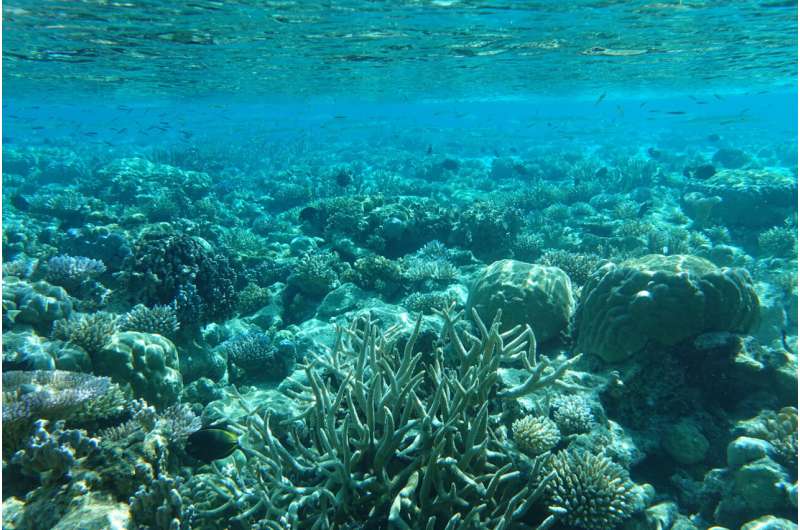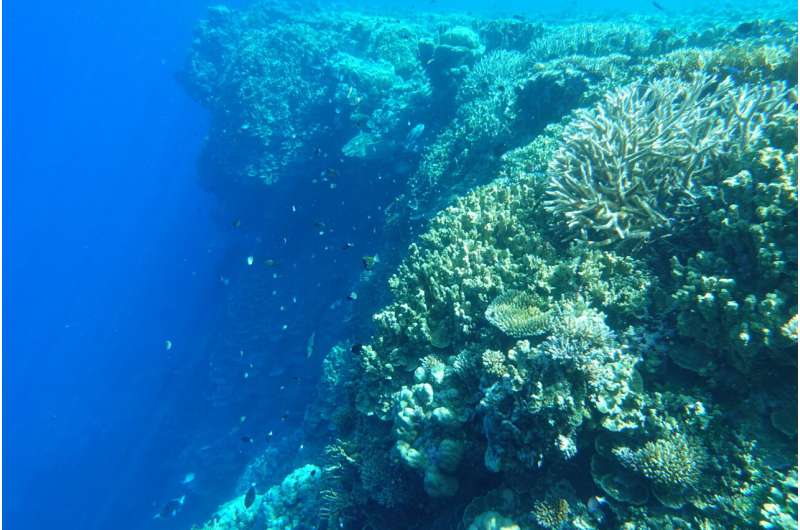New research identifies coral reef 'bright spots'

Marine heatwaves are threatening coral reefs around the world. A new study led by researchers at Florida Tech has identified coral reef 'bright spots' that will likely maintain relatively high coral cover through climate change, as well as 'dark spots' that are likely to lose significant coral cover.
The findings from the research lab led by Florida Tech professor Rob van Woesik and the non-profit organization Reef Check were published this week in the journal Global Change Biology.
The study is based on an extensive study at thousands of sites around the globe supported by the National Science Foundation and conducted by Reef Check using a standard method.
"While coral reefs continue to be threatened by climate change, our study sought to locate reefs around the world that may survive such temperature stressors, in the hope that we could influence policy and turn those 'bright spot' reefs into sanctuaries, or climate-change refuges, and thereby protect them from local disturbances such as pollution," said van Woesik, a professor and director of Florida Tech's Institute for Global Ecology.
"We have developed maps of future coral cover based on climate change projections," said Shannon Sully, an author of the study who recently earned her Ph.D. at Florida Tech. "These Google Earth maps are now freely available so that local management can use them as decision-support tools for geographical conservation efforts."

While the reasons why some sites are bright spots and some are dark spots are still being determined, the study also suggests that some larger-scale, coordinated management efforts could ensure that reefs with the greatest chance of survival receive specific conservation focus, van Woesik noted.
"In particular, these findings identify reefs in Indonesia, Malaysia, the central Philippines, New Caledonia, Fiji and French Polynesia, which should be focal localities for multinational networks of protected areas," he said.
More information: Shannon Sully et al, Present and future bright and dark spots for coral reefs through climate change, Global Change Biology (2022). DOI: 10.1111/gcb.16083
Journal information: Global Change Biology
Provided by Florida Institute of Technology





















